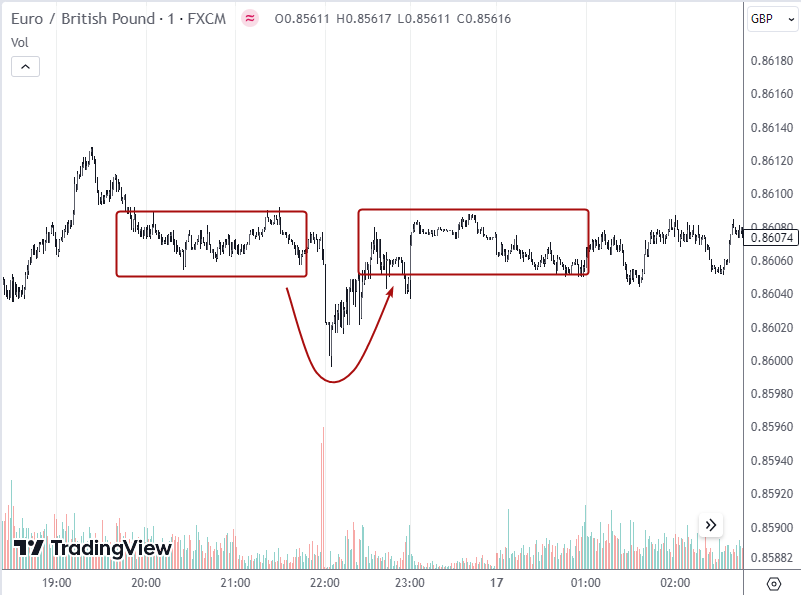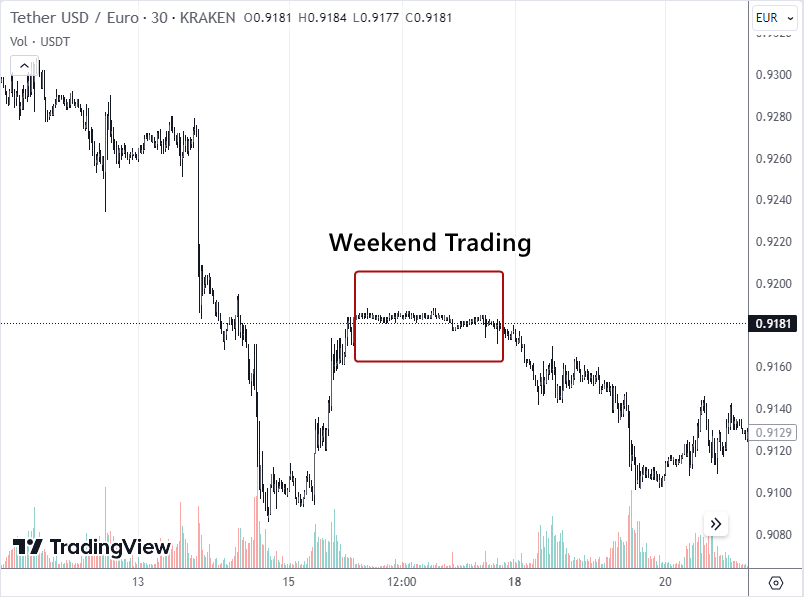How to Trade Forex After Hours: Beginner's Guide
The Forex market operates 24 hours a day during the week, providing constant trading opportunities even when major financial centers close down. For traders interested in continuing to trade Forex after traditional market hours, referred to as after-hours trading, this article explains a few strategies, analysis techniques, and risk management practices for these off-hour periods.
The Forex market operates 24 hours a day, five days a week, thanks to its global reach across multiple time zones. This continuous trading presents opportunities for traders even outside the major market hours. Trading Forex after hours typically refers to the periods when the biggest financial centers like New York, London, and Tokyo are closed.
After-hours trading is feasible but comes with its dynamics. Understanding the unique market conditions during these periods and tailoring strategies is important. This article explains how traders can approach Forex trading after hours, the potential opportunities, and the risks involved.
-
Is Forex trading possible after the markets close?
Yes, Forex trading continues even after the major markets like New York and London close for the day. Due to its global nature, the Forex market is open 24 hours from Monday to Friday. The market remains accessible through global Forex brokers.
-
Can you trade Forex after hours?
You can trade Forex after hours since Forex brokers allow 24-hour access on weekdays and limited hours over the weekends. During off-hours, market dynamics change due to low liquidity and lack of price competition.
-
What are the risks of trading Forex after hours?
Key risks of after-hours Forex trading include lower liquidity leading to wider spreads, increased volatility, especially around news events, limited access to trading resources, and vulnerability to price gaps between market close and open.
-
How do Forex brokers support trading after the markets close?
-
Forex brokers keep your overnight positions open and save their parameters at the time of the official close of the American session
-
Exchanges accept pending orders during Friday trading hours and keep them current until the first official quotes of the new trading week
-
On weekends, netting transactions between central banks, government and banking institutions, as well as some large participants in the exchange market are allowed. Transactions are carried out at special quotes that are not available to ordinary traders. It is these transactions that provide non-standard liquidity during off-exchange times
-
Can you trade Forex after the markets close?
The Forex market operates 24 hours a day during the weekdays, opening on Sunday in Wellington, New Zealand at 19:00 GMT or 5 PM EST (9:00 local time), and closing on Friday at GMT (22:00) or 5 PM EST, when the Chicago Stock Exchange closes trading.
This round-the-clock operation is the market's global nature, spanning across multiple time zones and financial centers. The Asian markets open first, then Europe, and then North America. When one center closes, the next one opens.
After-hours trading typically refers to:
-
Weekends when the individual country markets are closed
-
Shortened trading sessions on major exchanges (during holidays)
-
Late evenings after the US market closes and before the Asian markets open
Traders implement unique strategies tailored for these after-hours periods when liquidity and volatility differ significantly.
Best Forex brokers in 2024


What are the options for Forex after hours trading?
Here are some standard techniques and opportunities traders pursue in Forex during the after-hours periods:
-
Use specific strategies
-
Optimize strategies
-
Use Forex simulators for training
-
Use After hours to trade crypto
Use specific strategies
A popular trading strategy takes advantage of the weekend price differences between the US Friday close and the Asian Monday open. Here is how it works:
-
Monitor the price levels when the US session ends on Friday
-
When the Asian session opens on Sunday, the prices often go up or down noticeably – a price gap arises
-
Statistics show that in 80% of cases the price quickly returns to the closing level of the American session. And you can make a profit from this market dynamics

Use Specific Strategies
For instance, if the EUR/USD closes Friday at 1.1300 and then opens Sunday at 1.1250, the strategy involves buying EUR/USD in anticipation of a return to 1.1300.
👍 Pros
• Profit opportunity from the expected swing back to Friday's range
• Common price behavior makes frequent trade setups possible
👎 Cons
• It is not guaranteed that the price will return to its previous range
• Price may take too long to complete the gap
• Overnight swap fees charged for holding positions can eat into profits
Weekend trading
While the traditional Forex market is closed on weekends, the cryptocurrency market trades 24/7. This gives traders a way to access cryptocurrency trading during off-market hours.
For example, platforms like Kraken allow trading currency pairs against Bitcoin, providing an avenue for weekend fiat currency trading. Here is how it works:
-
Create an account on Kraken and complete account verification
-
Fund your account with cryptocurrencies or fiat currency, depending on the pairs you want to trade
-
Analyze the fiat currency pairs available and decide on a suitable strategy. Kraken offers USD, EUR, CAD, and JPY pairs
-
Place trades on Kraken's platform over the weekend. You can use market, limit, and stop orders

Weekend trading on Kraken
👍 Pros
• Ability to trade Forex 7 days a week, not just on weekdays
• Diversification into both crypto and Fiat currency pairs
👎 Cons
• Limited fiat currency pairs compared to dedicated Forex brokers
• Vulnerable to weekend crypto market volatility
You can read this article - Kraken Review 2024 if you are looking to make some money with crypto and fiat currency pairs.
How do you optimize a strategy?
Time when there is no trading on the main Forex exchanges can be used to develop, optimize and test strategies using special software.
Optimizing a Forex trading strategy involves continuously monitoring its performance and improving based on changing market conditions and latest data. Here are the key steps to optimize your strategy:
Backtest the Strategy
Backtesting involves running your strategy against historical price data to understand how it performed in the past. This allows you to evaluate its profitability.
To backtest, gather quality price data for your currency pair, clearly define your strategy rules, run the strategy against the data, and analyze key performance metrics like risk-reward ratio, profit factor, drawdown, etc.
Analyze the Results
Analyze backtest results to identify areas for improvement. Assess performance metrics to determine strategy weaknesses. Account for changing market conditions that may impact future performance.
Make Adjustments
Use insights from testing and analysis to fine-tune your strategy. Key adjustments can include:
-
Modifying entry/exit rules
-
Optimizing risk management parameters
-
Enhancing analysis methods
-
Adapting to evolving markets
Robust Risk Management
Managing risk is critical and it includes the following:
-
Setting stop losses
-
Limiting position size
-
Using prudent leverage
-
Diversifying trades
-
and sticking to a trading plan
Refine Money Management
Money management techniques like maintaining a minimum 2:1 risk-reward ratio per trade, limiting risk to 1-2% of capital per trade, and trailing stops help maximize profits.
If you are also looking for strategies that can enhance your existing trading strategy, refer to this article - How Do I Optimize My Forex Trading Strategy?
How to use Forex simulators
Forex simulators are valuable tools for honing trading skills, especially during after-hours when markets are closed:
-
Risk-free practice: Simulators provide a safe environment to gain experience with real market conditions without risking capital
-
Strategy testing: Backtest strategies against historical data to measure performance before applying them in live markets
-
Developing skills: Repeated simulator practice helps develop the analytical abilities and psychological discipline required for successful trading
After-hours is a good time for simulator practice since traders can focus entirely without worrying about live market monitoring.
If you are looking for best day trading simulators to improve your trading game, refer to this article on - Best Free Day Trading Simulators In 2024 to get your hands on best day trading simulators.
Use after hours to trade crypto
Cryptocurrencies provide an avenue for trading during Forex after hours like weekends:
-
24/7 markets: Major cryptocurrencies trade continuously, enabling access even when Forex markets are closed
-
Diversification: Trading cryptocurrency pairs allows expanding the possibilities of the investment portfolio beyond just Forex
-
Volatility: The high volatility of crypto assets provides opportunities for substantial profits. However, lower weekend liquidity in crypto and the elevated inappropriate actions of speculators also pose risks
Check out this article on What Is The Best Time To Trade Crypto for a better understanding of trading timing.
Forex after-hours: Tips for beginners
For beginners getting into Forex after hours trading, here are some key thing that you should consider:
-
Understand Market Sessions: Learn how the Forex sessions differ in volatility, liquidity, and price action. You can refer to this article - Forex Market Hours | Schedule and Trading Sessions to know more about trading sessions in detail
-
Start With a Demo Account: Practice after-hours trading on a demo account first to familiarize yourself with the different market conditions compared to regular hours
-
Be Cautious of Low Liquidity: Expect lower liquidity and wider spreads during after-hours. Focus on the most liquid major currency pairs
-
Monitor Economic Calendar: Stay updated on significant events scheduled during after-hours that could cause volatility
-
Use Stop Losses: apply strong risk controls on all trades to limit exposure to adverse price gaps and volatility
-
Avoid Overleveraging: Trade with less leverage during off-hours due to the risks associated with lower liquidity and higher volatility
To know more about Forex on the weekend - whether you can trade them or not. You can refer to this article - Can You Trade Forex on Weekends?
Conclusion
While the Forex market does slow down after the close of the major sessions, ample trading opportunities exist for those who understand the dynamics of after-hours. Using strategies explicitly tailored for periods like weekends, being mindful of risks like volatility and low liquidity, and leveraging tools provided by brokers, traders can potentially generate significant profits trading Forex after hours.
Glossary for novice traders
-
1
Broker
A broker is a legal entity or individual that performs as an intermediary when making trades in the financial markets. Private investors cannot trade without a broker, since only brokers can execute trades on the exchanges.
-
2
Trading
Trading involves the act of buying and selling financial assets like stocks, currencies, or commodities with the intention of profiting from market price fluctuations. Traders employ various strategies, analysis techniques, and risk management practices to make informed decisions and optimize their chances of success in the financial markets.
-
3
Volatility
Volatility refers to the degree of variation or fluctuation in the price or value of a financial asset, such as stocks, bonds, or cryptocurrencies, over a period of time. Higher volatility indicates that an asset's price is experiencing more significant and rapid price swings, while lower volatility suggests relatively stable and gradual price movements.
-
4
Forex Trading
Forex trading, short for foreign exchange trading, is the practice of buying and selling currencies in the global foreign exchange market with the aim of profiting from fluctuations in exchange rates. Traders speculate on whether one currency will rise or fall in value relative to another currency and make trading decisions accordingly.
-
5
Cryptocurrency
Cryptocurrency is a type of digital or virtual currency that relies on cryptography for security. Unlike traditional currencies issued by governments (fiat currencies), cryptocurrencies operate on decentralized networks, typically based on blockchain technology.
Team that worked on the article
Upendra Goswami is a full-time digital content creator, marketer, and active investor. As a creator, he loves writing about online trading, blockchain, cryptocurrency, and stock trading.
Dr. BJ Johnson is a PhD in English Language and an editor with over 15 years of experience. He earned his degree in English Language in the U.S and the UK. In 2020, Dr. Johnson joined the Traders Union team. Since then, he has created over 100 exclusive articles and edited over 300 articles of other authors.
Tobi Opeyemi Amure is an editor and expert writer with over 7 years of experience. In 2023, Tobi joined the Traders Union team as an editor and fact checker, making sure to deliver trustworthy and reliable content. The topics he covers include trading signals, cryptocurrencies, Forex brokers, stock brokers, expert advisors, binary options.
Tobi Opeyemi Amure motto: The journey of a thousand miles begins with a single step.









